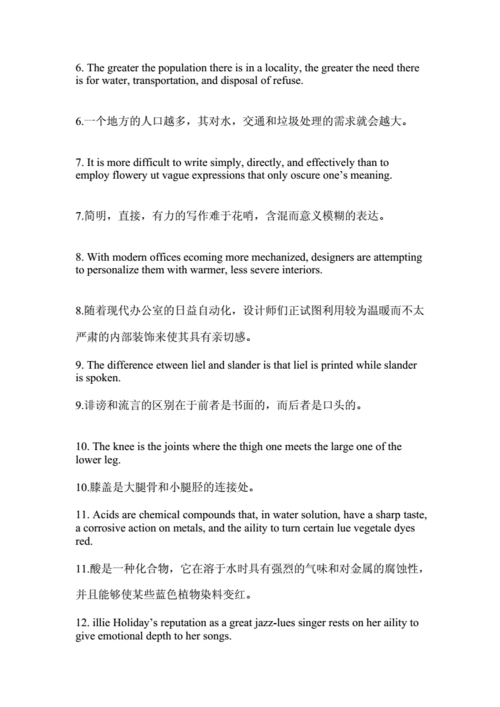迟早用英语怎么说?
"The Translation of '迟早' in English: Exploring Temporal Expressions"
Introduction:
The Chinese phrase "迟早" is a commonly used expression that conveys the idea of something happening sooner or later, inevitably or eventually. Translating this phrase into English requires understanding its nuances and finding the most appropriate temporal expression. In this article, we will explore different ways to translate "迟早" in various contexts and provide guidance on selecting the right expression.
1. "Sooner or later":
This translation captures the essence of "迟早" by suggesting that something will eventually happen. It implies a certain inevitability without specifying an exact timeframe. For example, "迟早他会明白" can be translated as "Sooner or later, he will understand." This expression works well in general statements or predictions.
2. "In due course":
This phrase emphasizes that something will happen at the appropriate or natural time, indicating a sense of patience and acceptance. For instance, "迟早会轮到你的" can be translated as "In due course, it will be your turn." This expression is suitable when talking about waiting for opportunities or turn of events.
3. "Sooner or later, one day":
This translation adds the notion of time passing and conveys the idea that something will eventually occur, even if it is not immediate. It implies a level of certainty and an eventual outcome. For example, "迟早有一天,真相会大白" can be translated as "Sooner or later, one day, the truth will come out." This expression is useful when talking about the resolution of a situation or discovery of the truth.
4. "Eventually":
This translation emphasizes the final outcome or result, suggesting that something will happen after a period of time. It implies a sense of inevitability and patience. For instance, "迟早会有好消息的" can be translated as "Eventually, there will be good news." This expression is appropriate when referring to the expected occurrence of a positive outcome.

5. "Inevitably":
This translation focuses on the certainty of something happening, regardless of the temporal aspect. It suggests that an event or situation is bound to occur, emphasizing the inability to avoid or prevent it. For example, "迟早你会后悔的" can be translated as "You will inevitably regret it." This expression is suitable when making a strong prediction or warning.
6. Context matters:
When translating "迟早," it is crucial to consider the context and the intended meaning. Depending on the situation, other expressions such as "in time," "sooner or later down the line," or "inevitably in the future" might also be appropriate. It is essential to reflect the intended message accurately and maintain clarity for English speakers.
Conclusion:
Translating the Chinese phrase "迟早" can be challenging because it implies a sense of inevitability and uncertainty about when something will happen. By considering the context and intended meaning, translators can use expressions like "sooner or later," "in due course," "eventually," and "inevitably" to convey the appropriate temporal sense. Selecting the right expression helps bridge the linguistic and cultural gaps, ensuring effective communication between English and Chinese speakers.
本文 新鼎系統网 原创,转载保留链接!网址:https://acs-product.com/post/9810.html
免责声明:本网站部分内容由用户自行上传,若侵犯了您的权益,请联系我们处理,谢谢!联系QQ:2760375052 版权所有:新鼎系統网沪ICP备2023024866号-15







